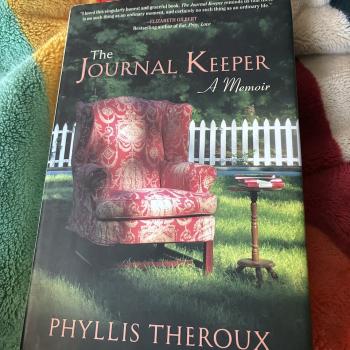Another question came my way: “Can Christians be depressed?”
I read the words and shook my head, mostly because I wish we didn’t have to ask such a question in the first place.

Christians can indeed be depressed, for depression is an illness. Depression, in its truest form, cannot be prayed away, nor should we believe it unlike any other medical diagnosis that requires proper intervention. Sometimes our brains get sick and sometimes our legs get sick; sometimes our tummies get sick and sometimes our throats get sick.
The least we can do is honor the truths our bodies speak when they do get sick.
Of course, this has not always been the case, at least not when it comes to understanding depression, including how it’s “shifted with culture and with our approach to disease as a whole.”
In her book, Companions in the Darkness, Diana Gruver invites the reader into her own story of depression, as well as the stories of seven other saints of the Christianity, all of whom struggled with depression in one way, shape or form.
After walking through a brief history, all the way back to how the ancient Greco-Roman saw depression, Gruver writes:
Since the days of bloodletting and mental asylums, our interventions for depression have advanced significantly. Though we still have a lot to learn about the complex inner workings of the brain, we do have access to treatments for depression that can result in relief for most people. A combination of medication and therapy is extremely effective in treating depression, and some lifestyle changes (like exercise, for example), can be helpful in addition to these treatments.
Gruver is the first to admit that she’s not a doctor or a therapist. Instead, she implores her reader to seek the help of a professional. (And, please, if you or someone you love is struggling with depression, seek the help of a professional). But she does promise to be a companion in the darkness. She does promise to walk alongside the reader with stories of solace and survival, of experience and lessons learned along the way.
And isn’t that the only thing we can do sometimes?
We can show up. We can listen. We can lean into the hardship and the pain, and be fleshy humans to one another on this journey of life.
And we, at least for our purposes here, can admit that depression is a real thing – even if this is not an answer we arrive at overnight.
As I wrote in yesterday’s post (and as you’ve likely encountered over the last couple of years through my writing), there has been a morph, a change, and an evolving in my faith over the years. There has been a clear movement away from black and white models of thinking into a space of spirituality that begged me color outside the lines.
I can’t help but wonder if it’s the same for you.
But for much of my life, I didn’t think depression had a place in Christianity. On the one hand, I clung to the belief that Christians should be marked by happiness and joy; in this version of religion, my “happy, happy, joy, joy” Jesus didn’t have anything to do with the upside-down, sad parts of life.
This, of course, was a lie – and it was a lie that began to crumble as soon as those upside-down, sad parts of life became real to me.
When I finally admitted that bad things do indeed happen to good people, I began to see the holes in my theology. I began to see what I’d gotten wrong. I began to see that I was wrong in my belief, and began the process of starting over and learning all over again.
But I also began to see a new side to Scripture.
Take, for instance, the first three verses of Psalm 77, which I preached on just a couple of weeks ago:
I cry aloud to God,
aloud to God, that God may hear me.
In the day of my trouble I seek the Lord;
in the night my hand is stretched out without wearying;
my soul refuses to be comforted.
I think of God, and I moan;
I meditate, and my spirit faints.
In these verses, the psalmist cries out and expresses lament. In these verses, yellow sunshine is not right around the corner; instead, we, as readers, are invite to sit in the pain and in the sorrow.
We too are invited to cry out, knowing that God will hear us – even if, in our sorrow, our souls refuse to be comforted and our spirit faints.
Even here, God is with us.
God is present.
God is our companion in the darkness.
Selah.
—
While I welcome your thoughts, mostly I want to say this: If you or someone you love is struggling with depression, please seek the help of a professional.













